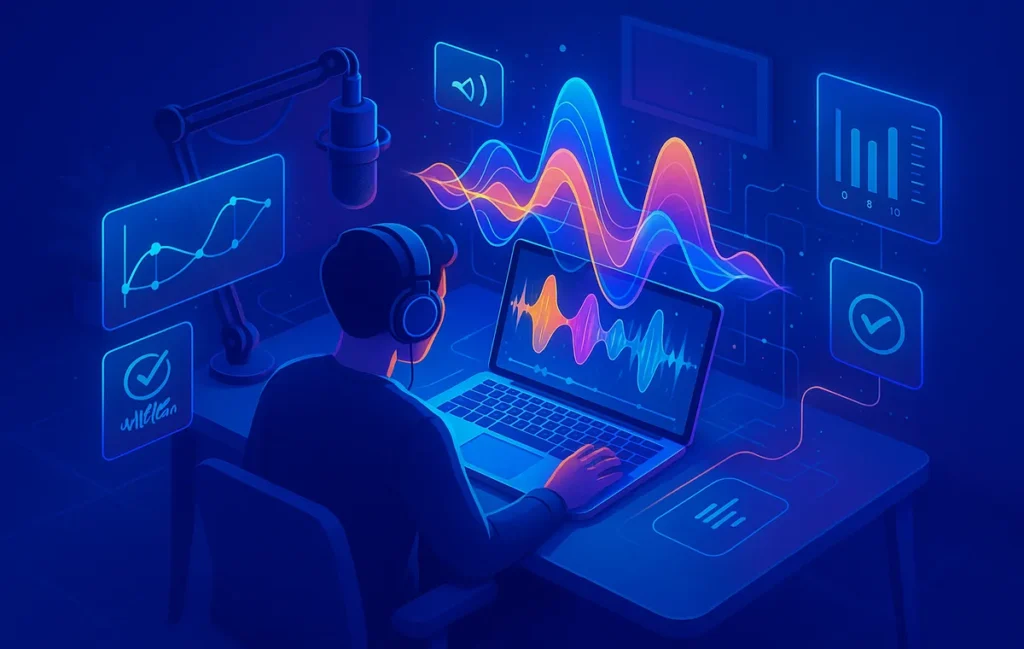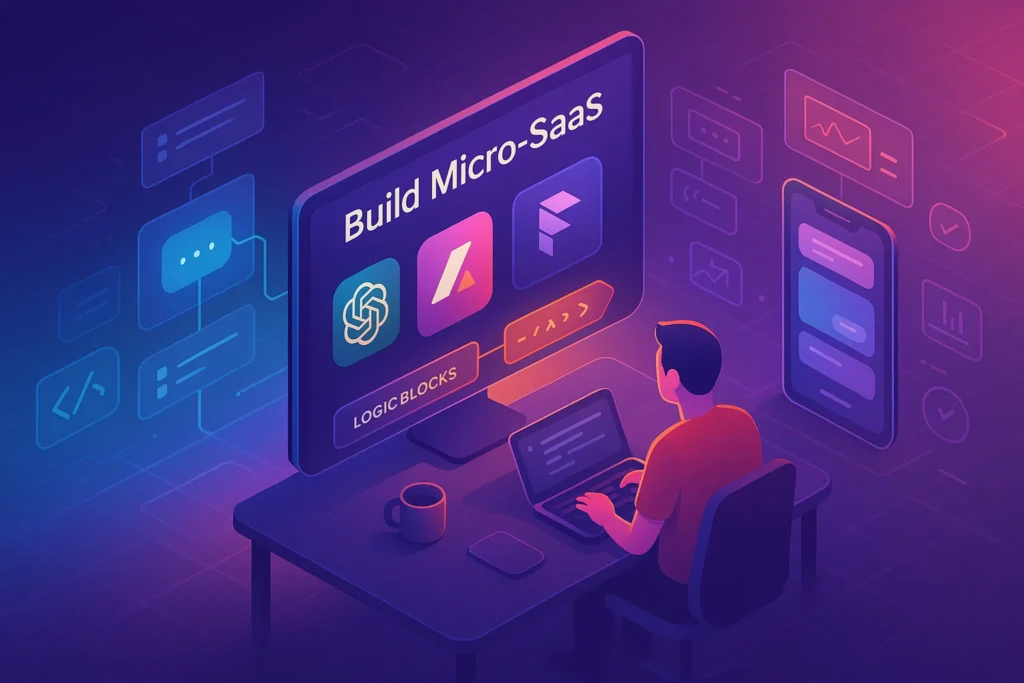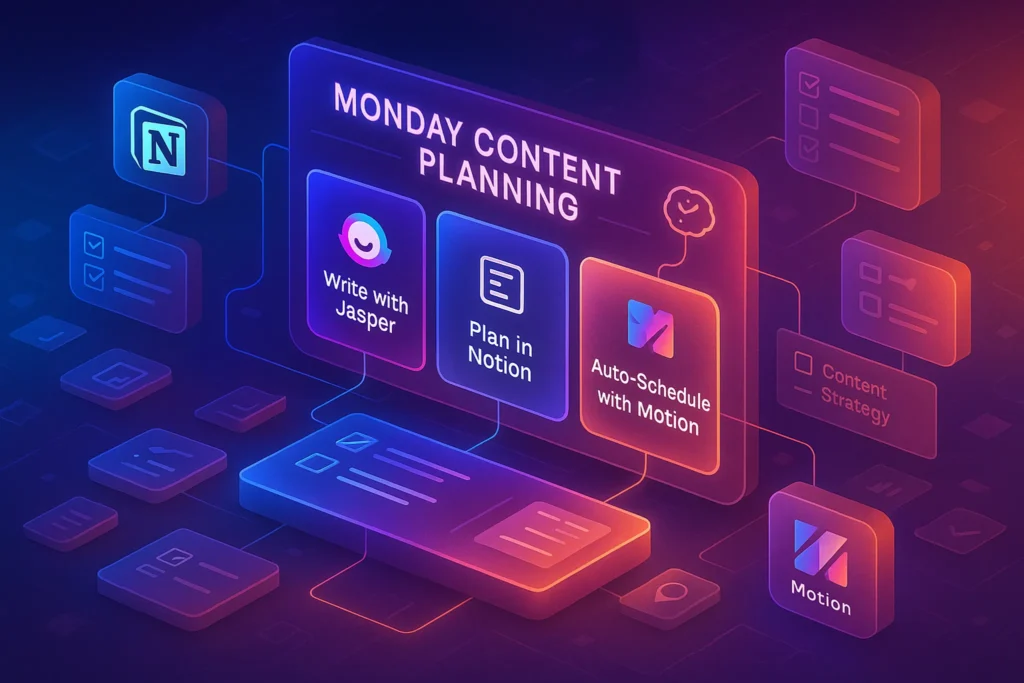🎧 Why Podcast Editing Apps Matter in 2025
Podcasting has grown from a niche hobby to a professional content format attracting over 500 million listeners worldwide. The competition is fierce: creators aren’t just competing for ears; they’re competing for attention spans in a world dominated by TikTok, YouTube, and AI-powered content streams. In this crowded arena, audio quality is a differentiator. A show with poor editing—long silences, background noise, or inconsistent volume—loses listeners fast.
Podcast editing apps in 2025 have evolved far beyond basic trimming tools. AI-driven features now auto-remove filler words like “uh” and “um,” balance voices across multiple speakers, and even generate professional-grade intros and outros with synthetic voices. What once required an expensive studio and hours of work can now be achieved in a fraction of the time with an intuitive interface.
💡 Nerd Tip: Think of your editing app as your co-producer. If it’s not saving you time or elevating quality, it’s just another piece of software.
🛠️ Core Features Modern Podcast Editing Apps Must Have
To produce a professional-grade podcast in 2025, the best editing apps need to provide more than waveform slicing. The standard toolkit now includes AI-driven noise reduction, multi-track editing, one-click mastering, and seamless publishing integrations. This shift mirrors the rise of automation tools for podcast production and publishing, where entire workflows can now be streamlined from recording to release.
Take Descript, for example. It pioneered text-based editing, letting you edit podcasts as if editing a Word document. Delete a sentence in text, and it deletes in audio. That model is now mainstream, with multiple apps offering transcript-based editing powered by AI. This not only speeds up the editing process but also pairs naturally with AI transcription tools, creating a dual workflow of editing and repurposing.
💡 Nerd Tip: Always check if the app supports cloud collaboration. If you’re co-hosting, live collaborative editing is a massive time-saver.
🎚️ The AI Revolution in Editing
One of the most significant breakthroughs in 2025 is the fusion of AI audio restoration with creative editing. Apps are no longer just tools—they act like engineers. For instance, new AI filters can detect and remove a dog barking in the background without damaging the host’s voice frequencies. Others adjust pacing by automatically shortening awkward pauses while keeping natural breathing intact.
Podcasters on X have been vocal about this shift. One creator tweeted:
“AI editing literally saved my show. What used to take me 8 hours per episode is now under 90 minutes—with cleaner sound than I could ever achieve manually.”
This aligns with broader creator workflows, where AI doesn’t replace creativity but handles repetitive, technical steps. For solo creators and small teams, this means they can now focus more on storytelling and audience building, the true drivers of podcast success.
💡 Nerd Tip: AI isn’t perfect—review every automated cut. Some tools still misinterpret long dramatic pauses as “silence to remove.”
🎤 Integration with Recording & Publishing Ecosystems
Podcast editing doesn’t exist in isolation. The best apps of 2025 integrate directly with microphones, recording platforms, and distribution channels. Imagine recording an interview at home using one of the best microphones for podcasting and video creators. With one click, your app imports the file, cleans it, and formats it for Spotify, Apple Podcasts, and YouTube.
This integrated approach is why platforms like Riverside and SquadCast are partnering with editing apps, offering an end-to-end ecosystem. For beginners asking how to create studio-quality podcast episodes at home, the answer lies in choosing apps that remove friction from recording to publishing.
💡 Nerd Tip: Editing apps that connect with hosting platforms save hours per episode. Look for built-in distribution pipelines.
Ready to Produce Pro-Level Podcasts?
Try modern editing apps with AI-driven mastering, text-based editing, and direct publishing. Get studio sound without the studio cost.
📊 Comparison Snapshot: Leading Podcast Editing Apps
| App | Best For | Unique Edge | AI Features |
|---|---|---|---|
| Descript | Solo creators & teams | Text-based editing | AI overdub, filler word removal |
| Adobe Audition | Professionals | Industry-standard audio suite | Adaptive noise reduction |
| Hindenburg Pro | Journalists | Narrative-first design | Auto-leveling for voices |
| Alitu | Beginners | One-click automation | Auto EQ, mastering |
💡 Nerd Tip: Match the app to your production style. Don’t pay for pro suites if all you need is clean, fast edits.
🎙️ Real-World Use Cases
Professional podcasters and beginners alike are finding value in editing apps. Take the case of a remote founder who launched a startup podcast from his home office. By using AI-powered editing, he cut production time by 70% and published twice as many episodes compared to last year. Another hobbyist in New York reported that her editing app automatically balanced volumes between her and remote guests, eliminating her biggest barrier to growth.
For those planning how to start a successful podcast from scratch, these stories prove that editing software is no longer a bottleneck. The tools are affordable, accessible, and powerful enough to carry an entire show’s quality.
💡 Nerd Tip: Start small. Your first priority isn’t the fanciest tool—it’s publishing consistently.
⚠️ Limitations & Pitfalls to Watch
While podcast editing apps are game-changing, they’re not without flaws. AI hallucinations sometimes cut meaningful pauses, disrupting pacing. Over-reliance on presets can also lead to “over-processed” audio that feels artificial. Privacy concerns matter too—cloud-based editing platforms require uploading sensitive files, which may not be ideal for confidential interviews.
One podcaster on X shared:
“My editing app killed the dramatic silence before a big reveal. Listeners thought I rushed the story. Lesson learned: review every auto-edit.”
💡 Nerd Tip: Trust AI, but verify. Manual review is the difference between pro quality and robotic output.
🚀 The Future of Podcast Editing Apps
By 2027, industry analysts predict that 50% of podcast editing will be fully automated. Apps will not only clean audio but also detect emotions, recommend pacing changes, and even generate promotional audiograms. The convergence of editing with marketing tools will blur the lines between creation and promotion.
For creators, this means editing apps will evolve into production hubs, managing not just sound but the entire lifecycle of a show—from script to publication. The same way smart homes evolved into ecosystems, podcast editing apps are becoming all-in-one creative platforms.
💡 Nerd Tip: Choose tools that are building toward ecosystem thinking. Future-proof apps grow as your show grows.
🎙️ Podcast Editing Apps vs. Human Editors
One of the most debated questions in the podcasting world is whether AI-powered editing apps can fully replace human editors. On one side, apps excel at repetitive, technical work: removing background hum, normalizing audio levels, and automatically deleting filler words. These are areas where speed and accuracy matter more than creative judgment.
However, human editors bring nuance. A skilled editor knows when to leave a long pause for dramatic effect, how to cut a conversation to maintain emotional flow, and when to enhance subtle background ambiance to strengthen storytelling. AI often struggles here—sometimes cutting “meaningful silence” or flattening the energy of a conversation.
💡 Nerd Tip: Use editing apps for efficiency, but lean on human intuition (or at least manual review) for storytelling finesse. The best shows blend both.
💵 The Monetization Angle: ROI of Editing Apps
Podcast editing apps are not just about saving time—they directly impact revenue and growth. By automating technical work, creators can publish more frequently and consistently, which leads to stronger audience retention. A consistent release schedule is often cited by advertisers as the number one factor in deciding sponsorship deals.
Additionally, reducing the cost of outsourcing editing means podcasters keep more of their ad revenue and Patreon income. According to a 2024 survey, independent creators using AI editing tools reported cutting production costs by up to 40%, allowing them to reinvest in marketing and audience growth.
💡 Nerd Tip: Treat editing apps as a revenue multiplier. The faster you publish, the quicker you can test monetization models like sponsorships and premium content.
📖 Case Study: From Indie Podcaster to Chart Rankings
Consider the story of a solo creator in Toronto who launched her podcast in 2023 with no budget for a professional audio engineer. By 2024, she adopted Descript for editing and Alitu for mastering. Within a year, she scaled production from one episode a month to one per week. Thanks to better audio consistency, her show cracked the Apple Podcasts Top 50 in Business category in her region.
She shared on X:
“I couldn’t afford a studio editor. Editing apps didn’t just clean my audio—they gave me consistency. And consistency got me listeners.”
This case illustrates how editing apps don’t just improve sound quality—they change the entire trajectory of a podcast.
💡 Nerd Tip: Consistency beats perfection. Apps give you the capacity to publish regularly, which matters more than flawless mixes in the early days.
📹 Future Tech Integration: Beyond Audio
The line between podcast and video content is blurring. Platforms like YouTube are pushing video podcasts, and editing apps are racing to integrate both formats. By 2025, some tools already support multi-camera editing, automatic subtitle generation, and AI-driven video clipping for social media.
The next frontier is likely to include AI avatars and synthetic co-hosts. Imagine an app that not only edits your voice but also generates a video version with an AI-generated avatar synced to your speech. For creators, this means editing tools won’t just fix mistakes—they’ll expand the creative canvas.
💡 Nerd Tip: Choose apps already experimenting with video features. Even if you’re audio-only today, the future of podcasting is hybrid.
🌐 Community Feedback: What Podcasters Say
The best way to understand the real impact of editing apps is to listen to the community. Here are a few voices from X and Reddit:
-
A hobbyist podcaster: “My app cleaned up a Zoom interview so well my listeners thought it was recorded in a studio.”
-
A professional host: “AI removed too much silence in my suspense episodes. It killed the mood. Manual tweaks are still essential.”
-
A startup founder: “Editing went from 6 hours to 1 hour. That’s 5 extra hours I can spend on marketing my show.”
This mix of praise and criticism highlights an important truth: apps are powerful, but they work best as partners, not replacements.
💡 Nerd Tip: Follow community threads regularly. Real user stories often reveal hacks and pitfalls faster than official documentation.
📬 Want More Smart AI Tips Like This?
Join our free newsletter and get weekly insights on AI tools, no-code apps, and future tech—delivered straight to your inbox. No fluff. Just high-quality content for creators, founders, and future builders.
🔐 100% privacy. No noise. Just value-packed content tips from NerdChips.
🧠 Nerd Verdict
Podcast editing apps in 2025 are no longer niche software—they’re powerful production partners. By combining AI automation with pro-level flexibility, they empower anyone to sound like a studio. The choice isn’t about which app is “best” universally—it’s about finding the one aligned with your workflow and audience goals.
For creators building shows on tight schedules or teams scaling up production, the right app turns complexity into clarity. At NerdChips, we believe the winners in this space are the creators who embrace tools without losing the human touch.
❓ FAQ: Nerds Ask, We Answer
💬 Would You Bite?
If an AI-powered app could edit your show flawlessly in 10 minutes, would you trust it—or still prefer a human touch for creative control?
Crafted by NerdChips for creators and teams who want their best ideas to travel the world.



